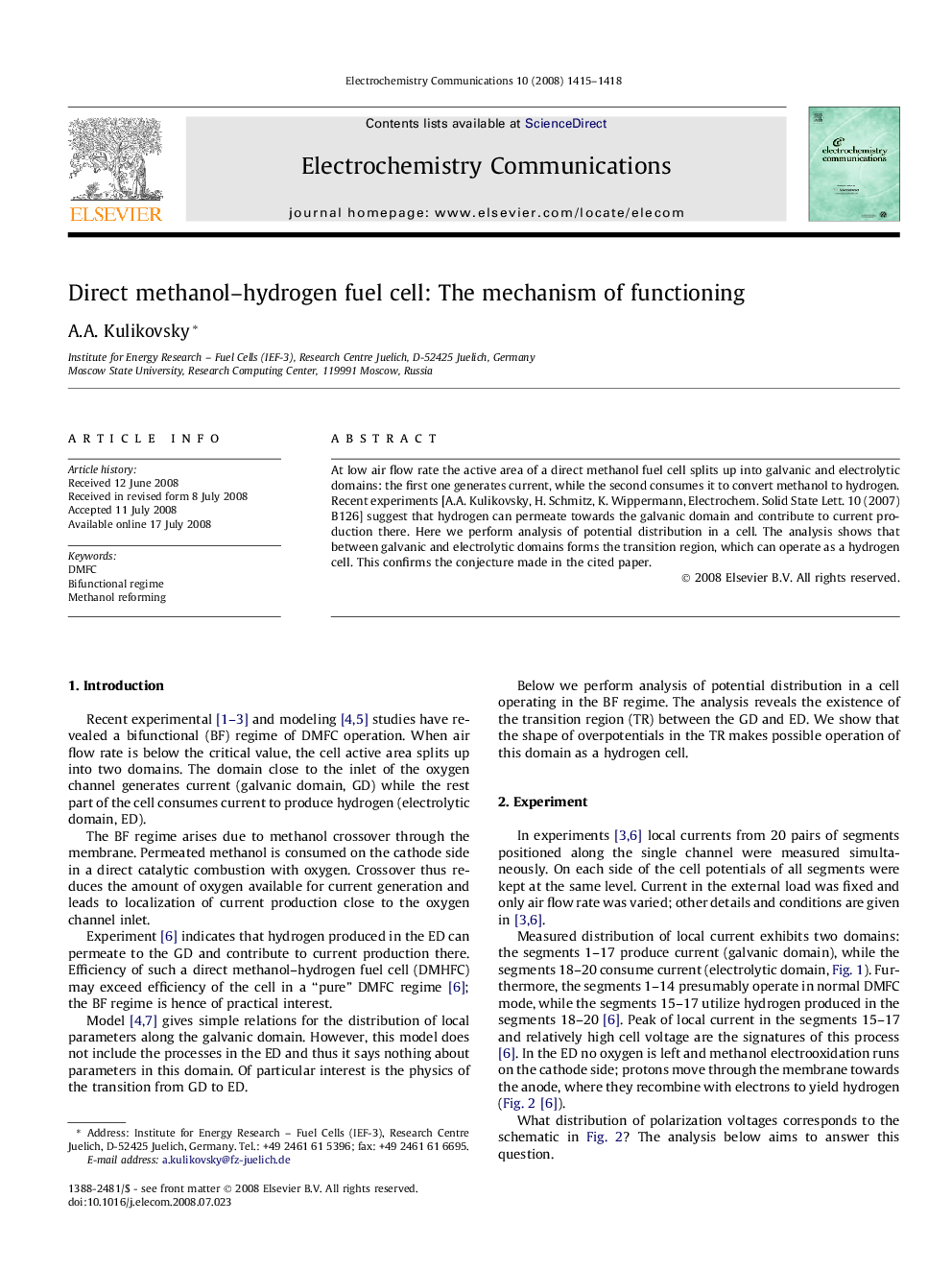| Article ID | Journal | Published Year | Pages | File Type |
|---|---|---|---|---|
| 181173 | Electrochemistry Communications | 2008 | 4 Pages |
Abstract
At low air flow rate the active area of a direct methanol fuel cell splits up into galvanic and electrolytic domains: the first one generates current, while the second consumes it to convert methanol to hydrogen. Recent experiments [A.A. Kulikovsky, H. Schmitz, K. Wippermann, Electrochem. Solid State Lett. 10 (2007) B126] suggest that hydrogen can permeate towards the galvanic domain and contribute to current production there. Here we perform analysis of potential distribution in a cell. The analysis shows that between galvanic and electrolytic domains forms the transition region, which can operate as a hydrogen cell. This confirms the conjecture made in the cited paper.
Keywords
Related Topics
Physical Sciences and Engineering
Chemical Engineering
Chemical Engineering (General)
Authors
A.A. Kulikovsky,
